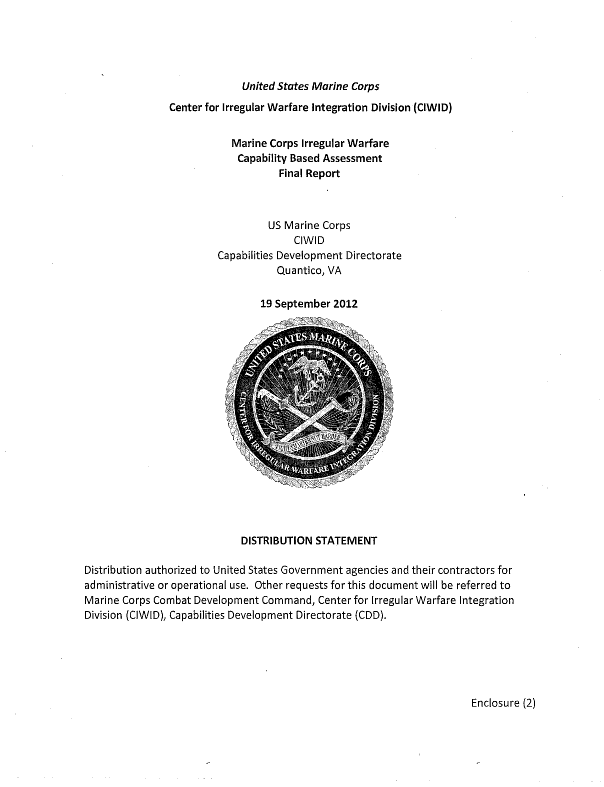
A kinder, gentler weapon, software, economic terrorism and exploiting weakness. What the U.S. military knows and what government leaders know but find difficult to defeat, IRREGULAR WARFARE.
The main protagonist in this section of the history book will not be a statesman or a military strategist; rather, it will be George Soros. Of course, Soros does not have an exclusive monopoly on using the financial weapon for fighting wars. Before Soros, Helmut Kohl used the deutsche mark to breach the Berlin Wall–a wall that no one had ever been able to knock down using artillery shells [see Endnote 13]. After Soros began his activities, Li Denghui [Li Teng-hui 2621 4098 6540] used the financial crisis in Southeast Asia to devalue the New Taiwan dollar, so as to launch an attack on the Hong Kong dollar and Hong Kong stocks, especially the “red-chip stocks.” [Translator’s note: “red-chip stocks” refers to stocks of companies listed on the Hong Kong stock market but controlled by mainland interests.] In addition, we have yet to mention the crowd of large and small speculators who have come en masse to this huge dinner party for money gluttons, including Morgan Stanley and Moody’s, which are famous for the credit rating reports that they issue, and which point out promising targets of attack for the benefit of the big fish in the financial world [see Endnote 14]. These two companies are typical of those entities that participate indirectly in the great feast and reap the benefits.
Soros pours out all his bitterness in his book, The Crisis of Global Capitalism. On the basis of a ghastly account of his investments in 1998, Soros analyzes the lessons to be learned from this economic crisis.
When it comes to the axiom, Know Thy Enemy, China has made an art of this objective. China does so by any means possible with notable success.
In 1999, China used analysts to understand their adversaries such that the primary mission was to achieve a wide set of competitive edges, all under the ethos of ‘Unrestricted Warfare’.
Going beyond the common air or ground war operations, there are countless other methods to gain advantage or defeat others in a competitive world.
A 200 page essay published in 1999 came to the attention of U.S. military leaders. It is a compelling read and germane to conflicts today and well into the future.
Unrestricted Warfare by Qiao Liang and Wang Xiangsui
Qiao Liang is a Chinese Air Force Major in the People’s Liberation Army and co-authored a book titled ‘Unrestricted Warfare’. The scope of the book is China’s Master Plan to Destroy America.

Meanwhile, if you can stand more, there is Russia. The two countries are using the very same software warfare tactical playbook and it too has not gone unnoticed.
EU sets up unit to counter Russia’s disinformation campaigns
Janes: The EU announced on 27 August that it is forming a small “rapid response” team of officials within the European External Action Service (EEAS) to deal with Russian propaganda.
To be launched on 1 September, the team will monitor Moscow’s propaganda manoeuvres and advise EU and national authorities and their media campaigns accordingly, said EU officials.
The move comes in response to a request in March by EU leaders to Federica Mogherini, the EU’s chief of foreign and security policy, to mount a response to “Russia’s ongoing disinformation campaign”.
The team will be comprised of 8-10 Russian-speaking officials from Sweden, the UK and other countries within the EEAS, the EU’s foreign policy wing.
***
The Cyber War: As tension between the United States, Russia and China continues to escalate, reports of cyber warfare between the nations has become increasingly prominent. Modern warfare can be waged in numerous ways, and it seems that this virtual form of conflict will be an increasing theme as the 21st century develops.
The cyber warfare between the United States, Russia and China is part of an overall epoch-defining conflict between the three nations. This is largely based on economic disagreement and rivalry, but has also spilled over into military and territorial disputes as well. Although this war has remained physically peaceful thus far, the potential for future conflict between the three nations remains significant. And with the likes of Edward Snowden revealing the extent of government snooping, we can expect more reports of governmental cyber attacks in the future.
